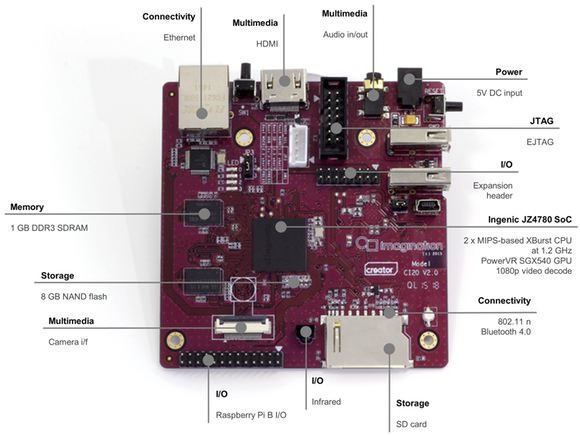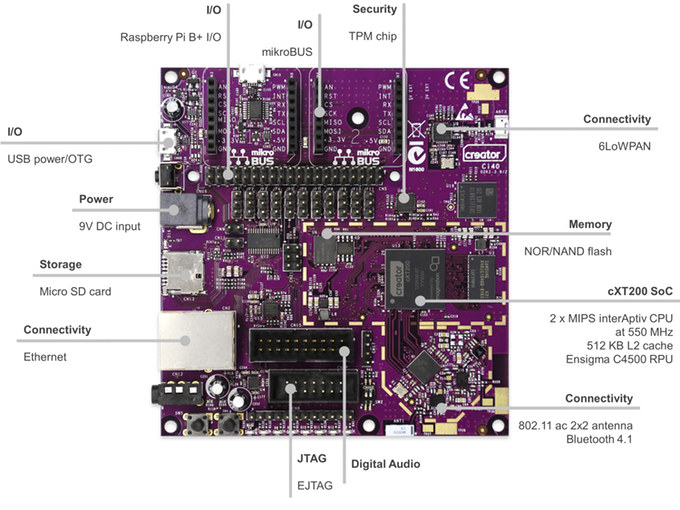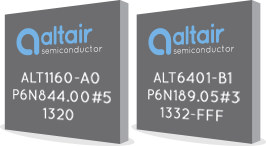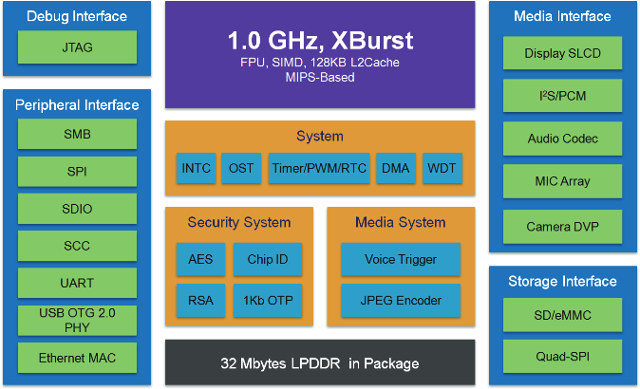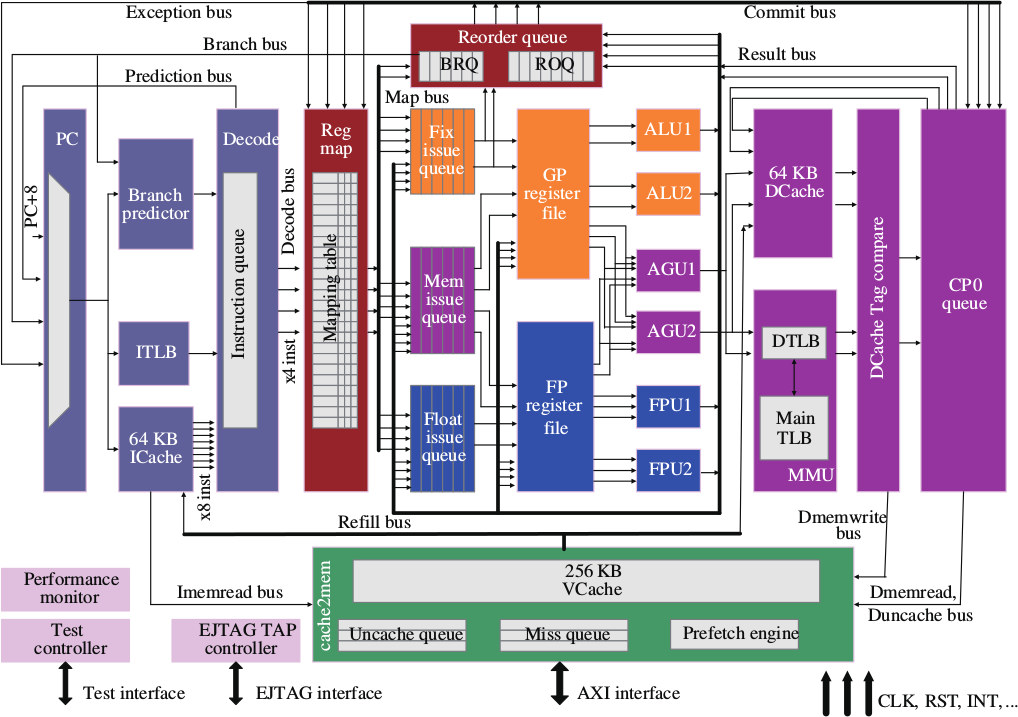I’ve noticed Hackster hardware community has helped organizing several challenges for makers, and the most two recent one are sponsored by Imagination Technologies with their Creator CI20 MIPS board, and SeeedStudio and Beagleboard.org with BeagleBone Green board. “Terminate the competition with Creator Ci20!” That’s the title for Imagination Technologies contest, who basically wants you to create our robot overloads using their MIPS board, or at least design a Terminator inspired robot or hack using the board. You’ll need to submit your idea by March 4, 2016, and the company will give 50 Creator Ci20 to the best 50 ideas, aftwer which you have until April 29, 2016 to complete your project, and write about it on Hackster with photos, code and schematics. Three winners will be selected by May 6, 2016 to get one of the three prizes: 1st place (worth $400) – A bag of Imagination-powered goodies, including a Meizu […]
FOSDEM 2016 Schedule – Open Source Hardware and Software Event in Europe
FOSDEM (Free and Open Source Software Developers’ European Meeting) is a 2-day event that usually takes place on the first week-end of February in Brussels, but this year it will be on January 30-31. The event brings thousands of developers, hackers, and other person interested in open source technology who present their projects and share ideas. FOSDEM 2016 schedule is now available, and There will be 557 speakers, 612 events, and 50 tracks this year including 7 main tracks: Distros, Enterprise, Hardware, Communications, Miscellaneous, Office, Systems Administration, and Virtualization. So I’ve had a look at some of the talks, especially out of “Embedded, Mobile and Automotive” and “IoT” devrooms, and prepared my own virtual schedule although I won’t be able to attend. Saturday 10:30 – 10:55 – MIPS, the other side of the embedded by Alexjan Carraturo For many years MIPS processors have been involved in the embedded market, particularly […]
MIPS Creator Ci40 Development Board Powered by cXT200 SoC Launched for $53 on Kickstarter
Last year, Imagination Technologies launched their first community development board with MIPS Creator CI20 powered by Ingenic JZ4780 dual core MIPS processor running both Android and Linux, and now supported by various projects. The company has been teasing about its MIPS Creatort Ci40 for a few weeks, and was already announced as the MIPS platform of choice for Google Brillo operating system, but the board has now officially been launched via a Kickstarter campaign where you can get the board for $53, as well as some add-on boards. But instead of using a processor from one of their partner, Imagination just designed their own MIPS interAptiv SoC for the board. Creator Ci40 board specifications: SoC – Imagination Technologies Creator cXT200 with 2x MIPS interAptiv core @ 550MHz, 512KB L2 cache, and an Ensigma C4500 RPU (for 802.11ac/ BT 4.1 LE) System Memory – 256 MB DDR3 Storage – 512 MB […]
Linux 4.3 Release – Main Changes, ARM and MIPS Architectures
Linus Torvalds released Linux Kernel 4.3 last week-end: So it *felt* like the last week of the rc series was busy, to the point where I got a bit worried about the release. But doing the actual numbers shows that that really was just my subjective feeling, probably due to the kernel summit and travel back home from Korea. It wasn’t actually a particularly busy week, it’s just that the pull requests were more noticeable in the last couple of days. We had a network update and a late fix for a x86 vm86 mode bug introduced by the vm86 cleanups, but other than that it’s just a collection of various small one-liners all over. Ok, the vm86 mode thing was a one-liner too, it was just slightly more nerve-wracking because it looked scarier than it was before people (Andy) figured out what was going on. The changes from rc7 […]
Altair FourGee LTE Chipsets Promise 10 Years of Connectivity with AA Batteries for IoT Applications
Connectivity achieved with GSM,. 3G or LTE (4G) cellular networks is great for long distances, but usually costs and power consumption are too high for IoT or M2M communications, which explains why there are competing long range low power WAN standards such as Sigfox, LoRA or Weightless. Altair Semiconductor introduced two new LTE SoCs, namely FourGee-1150/6410 and FourGee-1160/6410 a few months ago, supporting respectively LTE Cat-0 and Cat-1 connectivity, and promising up to 10 years of battery life on AA batteries for smart meters, wearables, security alarms, city lightings, etc… Altair FourGee-1150 and FourGee-1160 key features and specifications: Processor – Multiple MIPS M5150 “Warrior” MCU cores LTE Connectivity FourGee-1150 LTE Release 12 Category-0 (1Mbps / 1Mbps), software upgradeable for supporting Release 13 features Integrated VoLTE/IMS/OTA-DM functionality FourGee-1160 LTE Release 11 Category-1 (10Mbps / 5Mbps), software upgradeable for supporting Releases 12 and 13 features Integrated VoLTE/IMS/OTA-DM with HD voice functionality Software […]
Ingenic X1000 MIPS Processor and X1000 Phoenix Board Target IoT and Embedded Applications
Ingenic is a Chinese SoC vendor that makes processors featuring their X-Burst cores based on MIPS architecture. Their JZ47 series can be found in tablets and development boards such a MIPS Creator CI20, while their M series, including Ingenic M200, are dedicated to wearables & IoT applications. The company has now launched X series starting with X1000 processor which include an audio codec, a Voice Trigger Engine (VTE) and 32MB RAM in package. Ingenic X1000 features: CPU Core – Ingenic MIPS XBurst 32-bit core up to 1.0 GHz, Double precision hardware float point unit, L1 cache 16KB/16KB, and L2 cache 128KB Security Core – On-chip security ROM and RAM, hardware AES and RSA, supports security boot and user customization Memory 32MB LPDDR in package Support 16-bit DDR2, DDR3 and LPDDR up to 512MB Support Quad-SPI NOR/NAND, eMMC, SDHC Display – 8-bit, 9-bit, 16-bit parallel interface SLCD up to 640×480@60Hz, 24 […]
Loongson Introduces MIPS64 3A2000 & 3B2000 Processors Based on GS464E Architecture
Loongson recently unveiled two new quad core processors Loongson-3A2000 & Loongson-3B2000 targeting respectively consumer electronics and server, and on the company’s new GS464E architecture using MIPS64 cores. Both processors are 4-way superscalar processors built on a 9-stage, super-pipelined architecture with in-order execution units, two floating-point units, a memory management unit, and a crossbar interconnect. According to Imagination Technology, Chinese media reported that 3A2000 CPU was designed at high-performance consumer electronics products such as desktop computers and laptops, 64-bit embedded and DSP applications, and network routers, while 3B2000 will be used in 8 to 16 core server systems, meaning there would be 2 to 4 quad core processors in these servers. I could not find anything about the new processors on Loongson product page, but a white paper describes GS464E architecture in details. Unfortunately, the document is entirely in Chinese, except the abstract and some charts and tables: Loongson GS464E is […]
Linux 4.2 Release – Main Changes, ARM and MIPS Architectures
Linus Torvalds released Linux Kernel 4.2 last Sunday: So judging by how little happened this week, it wouldn’t have been a mistake to release 4.2 last week after all, but hey, there’s certainly a few fixes here, and it’s not like delaying 4.2 for a week should have caused any problems either. So here it is, and the merge window for 4.3 is now open. I already have a few pending early pull requests, but as usual I’ll start processing them tomorrow and give the release some time to actually sit. The shortlog from rc8 is tiny, and appended. The patch is pretty tiny too. Go get it, Linus Some notable changes made to Linux 4.2 include: File systems New features for F2FS including per file encryption CIFS support SMB 3.1.1 (experimental) Cryptography – Jitter Entropy Random Number Generator, Chacha20 stream cipher and Poly1305 authentication (RFC7539),New RSA implementation. See lwn.net […]


